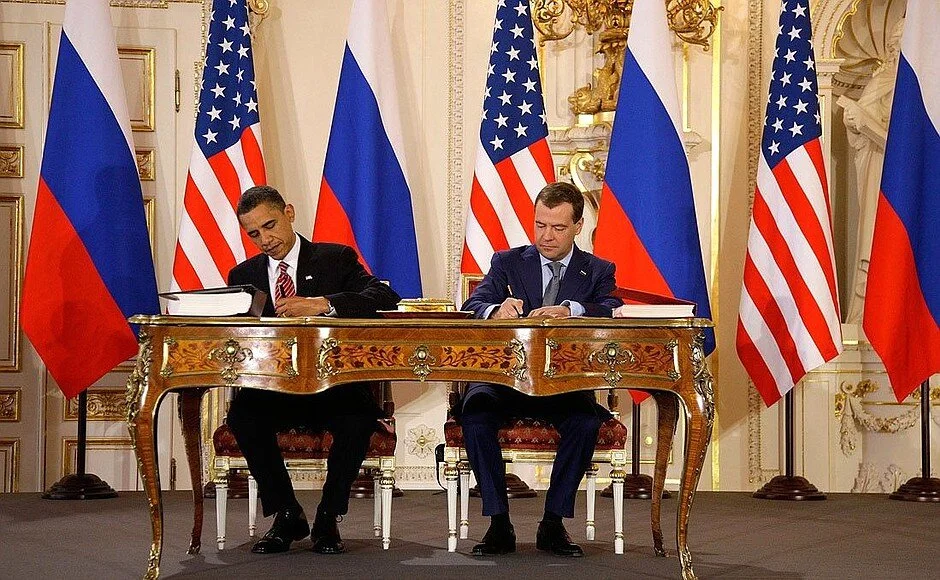Time for Congress to Hold Russia Accountable on Missiles
While much attention has been focused on Russian meddling in the American presidential election, another significant story has gone largely ignored. Concerns have been raised about Russia violating the Intermediate Range Nuclear Forces Treaty since 2008. In 2014, the State Department officially listed Russia as being “in violation” of the Treaty for testing the SSC-8 missile. Despite this acknowledgment, the United States has been largely silent on the issue, and Russia has continuously denied that it is in violation. The United States cannot allow Russia to violate a treaty related to nuclear missiles in silence. Senator Ben Cardin (D-MD) has drafted Senate Bill 1476 titled “Countering Russian Missiles Act of 2017.” This bill is a clear, measured response that represents the best chance of convincing Russia to abide by the standards of the Treaty.
The Intermediate Range Nuclear Forces Treaty was signed between the United States and the Soviet Union in December 1987. This banned the testing and possession of ground launched ballistic and cruise missiles with a range between 500 and 5,500 kilometers. By May 1991, both nations had eliminated their entire arsenals, resulting in 2,692 missiles being destroyed. Perhaps most significantly, the verification program ensured accountability between the two premier nuclear powers because it “was the most detailed and stringent in the history of nuclear arms control.” Following the collapse of the Soviet Union in 1991, the Treaty was extended to include Russia and eleven other Soviet successor states.

In March of 2017, General Paul Selva, Vice Chairman of the Joint Chiefs of Staff, testified to Congress that he believed Russia had deployed two battalions of land-based cruise missiles, in blatant violation of the Treaty. The two battalions could have a total of 48 missile launchers, with even more missiles in reserve. General Selva emphasized that these deployments would put most European NATO bases and personnel within range, and that he did not believe Russia intends to return to compliance. The refusal to return to compliance should not come as a surprise given Russia’s recent actions where it has continuously flouted international norms and law, from military actions in Ukraine and tampering with political elections in the United States and Europe.
Senator Cardin’s bill is the first major attempt to reacting to the violations committed by Russia. This bill seeks to engage Russia diplomatically through the Special Verification Commission that was established in the original Treaty to address grievances and verification mechanisms. Additionally, the United States will make a concerted effort to prove that it is aware of the violations. These steps alone are doubtful to bring about the desired change in Russia. However, it is essential that the United States maintain the moral high ground within the framework of the Treaty to reinforce the argument that Russia is in violation. This is necessary to facilitate support from allies in what will likely be an era of increased arms competition throughout Europe.
This bill outlines three steps to follow if Russia does not return to compliance by January 1, 2019. First, the United States will work to improve European deterrence and defense capabilities. This will include developing a conventional variant of the Long Range Stand-off System which is stealthy enough to avoid Advanced Integrated Air Defenses, and more accurate than current munitions such as the AGM-86. Additionally, it would be Treaty compliant because it is an air delivered non-nuclear weapon. Secondly, the Bill calls for increasing assistance to allies by improving their air and sea launched conventional capabilities. This would also include allowing sales of the Joint Air-to-Surface Standoff Missile and sea-based Tomahawk cruise missiles. The Joint Air-to-Surface Standoff Missile is specifically designed for stealth, accuracy, and the ability to destroy strongly defended and valuable targets, both mobile and stationary, with enough standoff space to keep the crew out of range of enemy defenses. Conventional systems also provide flexibility as the level of assistance or sales are easier to adjust as the situation dictates. Finally, limited defenses against cruise missiles would be deployed to protect key NATO assets.

These measures are likely to elicit criticism that it would increase tension with Russia. However, the dual approach of diplomatic efforts and military pressure was responsible for convincing the Soviet Union to negotiate the Treaty in 1987. At the same time diplomats attempted to engage their Soviet counterparts, NATO deployed over 500 cruise and ballistic missiles throughout Germany, Italy, the United Kingdom, and Belgium and continued throughout the peace talks. While the Russian missiles pose a threat to most of Europe, they likely do not give a strategic advantage to Russia over the United States. However, it is still urgent the United States act to remove the missiles and see that Russia once again complies with the Treaty it signed. The longer the United States does nothing, the more emboldened Russia will become to deploy more missiles and consequently, become a larger threat.
Convincing Russia to remove two battalions of missiles will be a challenging undertaking. Waiting until Russia has a larger arsenal will only make the process more difficult and increase the chances of restarting the an arms race. It remains in the best interest of the United States to enforce the Treaty as a means for effective arms control and a check on Russia’s ability to produce and deploy missiles capable of threatening vital strategic interests abroad. Senator Cardin’s bill ensures the United States remains compliant with the Treaty, but in a position of strength to demand Russia also fulfill its obligations. For too long, the United States has allowed Russia to ignore international norms, laws and treaties. If the United States does not act now, it will be forced to react to a much stronger Russian threat in the future.
